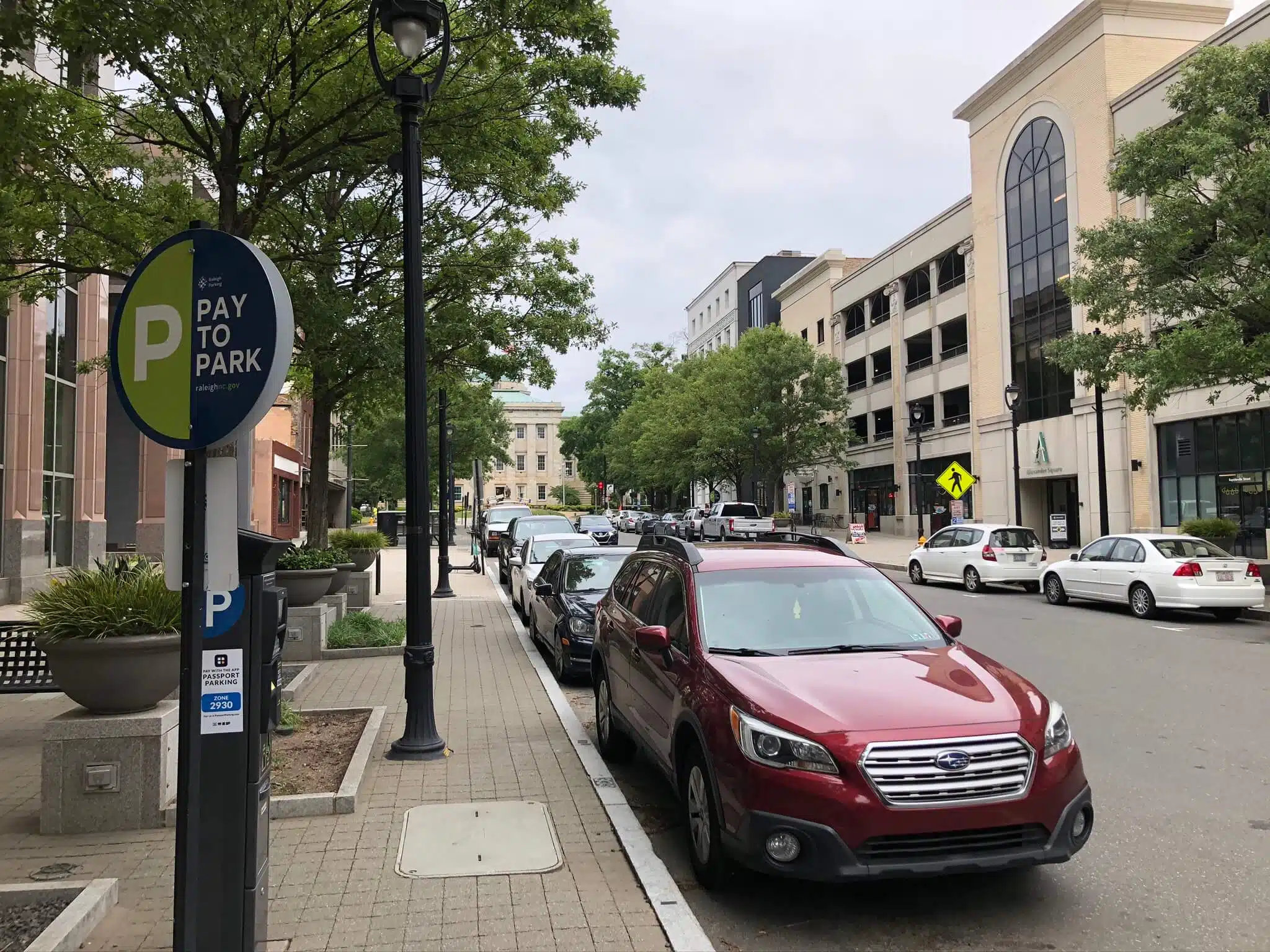- March 7, 2023
- Perspectives, Trending Topics
Three Views on the End of Parking Minimums


Robert Ferrin, CAPP
Parking & Mobility Practice Lead
Minimum parking requirements date back to the 1920s—nearly as long as zoning codes—and most cities implemented them in the 1960s. They have shaped our cities and helped personal vehicles dominate Americans’ transportation.
More than 50 years later, 2017 ushered in a new era, when Buffalo, New York became the first major U.S. city to abolish parking minimums. Minneapolis, Raleigh, San Jose, and others followed. At the beginning of 2023, California became the first state to abolish parking minimums for developments located near public transportation routes.
Affordable housing, transit, and environmental advocates celebrate these policy changes. They point to decreased development costs, improved walkability, and increased multi-modal transportation – which lowers carbon emissions and vehicle congestion. Together, they help meet municipalities’ climate action goals.
But what does this mean for urban development? What should policymakers consider as they contemplate parking reforms? And what tools can cities introduce to manage parking demand and support new policies?
Gain Flexibility to Rethink Parking Needs
Parking is the most varied aspect of cities’ zoning codes. Therefore, parking codes often conflict with parking demands and policy goals promoting mixed-use, dense, and walkable areas.
Eliminating minimum parking requirements reduces costs and helps streamline the entitlement process. However, abolishing mandatory parking minimums does not remove the need for parking. Vehicle access for parking and loading remains critical to a project’s success.
Developers, therefore, have an opportunity and a responsibility to redefine their parking needs for today and for the future. To do so, they must:
- Understand trip generation volume
- Gain insights on how people, goods, and services will access the site
- Analyze shared parking opportunities both on- and off-site
- Weigh transportation demand management tools, including shared mobility programs, transit, bike infrastructure, and electric vehicle charging stations
Parking Reform for Holistic Improvements
Put yourself in the role of a city manager whose neighboring town just abolished parking minimums. Within days, your phone rings off the hook, and elected officials and developers ask when your city will also end parking minimums. As a policymaker, how do you proceed?
As more cities follow suit, these conversations are repeating themselves across the country.
First, abolishing minimum parking requirements should not be done in a vacuum. Parking underpins how your community accesses most employment opportunities, services, and homes. Instead, begin by evaluating:
- Complementary initiatives that would support abolishing minimum parking requirements
- Investments to increase residents’ mobility options
- Current work on a strategic transportation plan to rethink mobility locally and regionally
- Barriers to increasing affordable housing, urban infill, and mixed-use development
- Sustainable community growth
Second, identify internal and external stakeholders who will champion new parking policies. This will reveal how parking reforms can lead to other zoning code reforms that meet broader initiatives and policy goals.
Third, consider other parking reforms for your jurisdiction. Abolishing parking minimums is only one option. Analyze the impact of electric vehicle adoption and charging infrastructure. Solicit community feedback from neighborhood associations, developers, property managers, and advocacy groups.
Evolve the Use of Curb Space
Consumer habits – most recently on-demand delivery and new mobility options – change curb access demands. Abolishing parking minimums further complicates how to negotiate curb space usage.
Municipal parking and mobility operators should consider how to adjust to usage trends and preserve quality of life for residents, workers, and visitors. Forward-thinking planners are already identifying parking and transportation demand management tools, maintaining access to neighborhoods and business districts with limited off-street parking, and re-evaluating public parking options. Cities can follow their lead and adapt regulations to incentivize shared parking and shared mobility programs.
These steps may require education, enforcement staff, and technology, ultimately encouraging compliance for the city’s maximum benefit.
In all, abolishing minimum parking requirements opens exciting opportunities to rethink vehicular and non-vehicular curb space usage. Developers, policymakers, and municipal operators will need creativity and community engagement to best implement reforms for local needs.
Contact our Parking consultants to modernize your city’s parking codes and operations.
About the Author

Robert Ferrin, CAPP
For nearly 20 years, Robert has specialized in smart city solutions, urban and economic development, transportation planning, and asset management. Robert joined Kimley-Horn after nearly five years with the City of Columbus, where he led the Parking Services team as a Department of Public Service Assistant Director. In Columbus, he spearheaded a modernization program, including the introduction of a mobile pay and reservation platform, virtual permitting, curbside management, and a new parking meter system. Before his role in Columbus, he held parking and mobility leadership roles in Aurora and Denver, Colorado. In Aurora, he oversaw the construction and management of transit and hotel conference center off-street parking facilities, including valet operations. In his hometown of Charlotte, he led research efforts at the Downtown Business Improvement District for over five years, working on a wide range of transportation and economic development initiatives. Robert currently sits on the International Parking & Mobility Institute (IPMI) Board, where he advances smart cities, research and innovation, and electrification.
